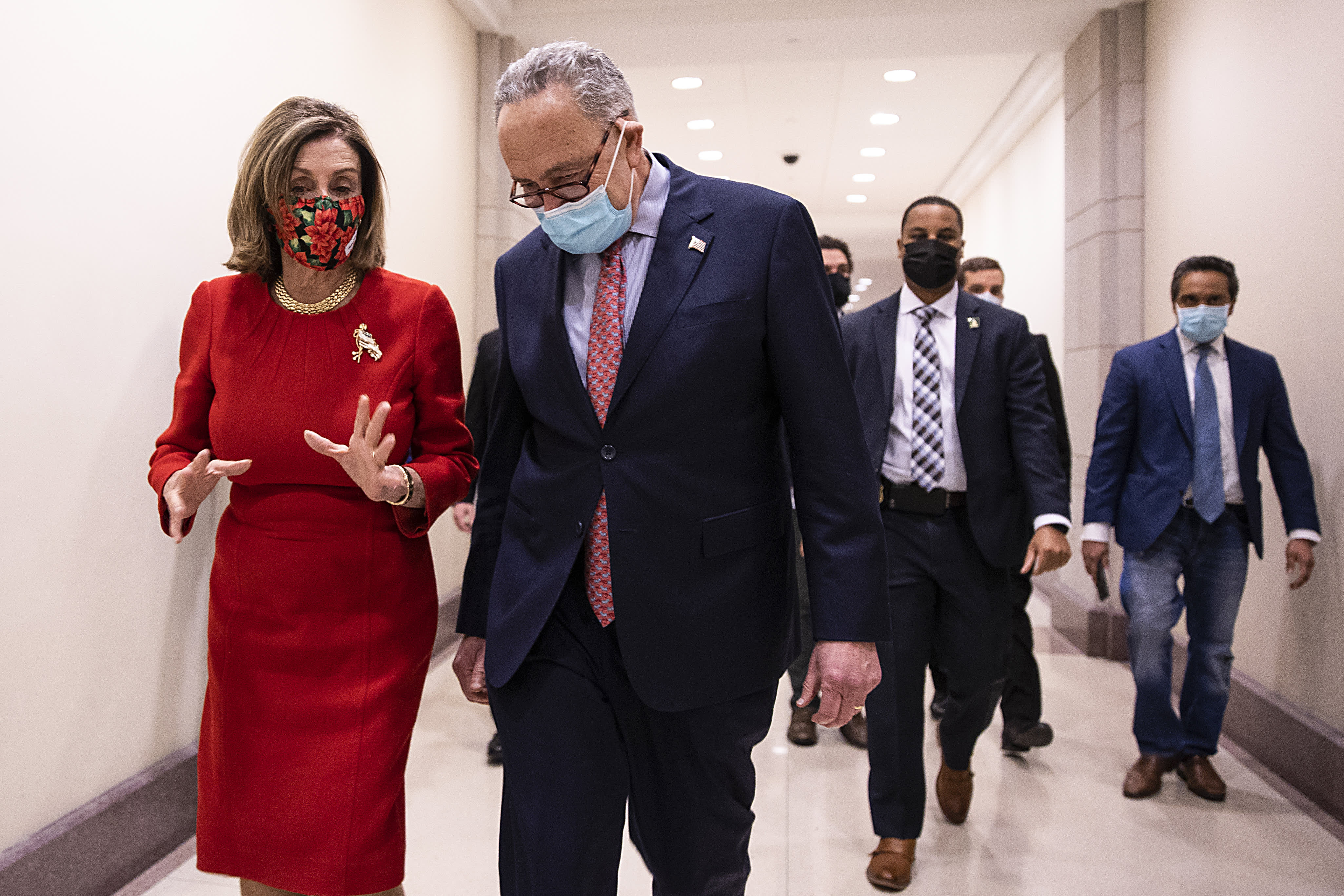Speaker of the House Nancy Pelosi (D-CA) and Senate Minority Leader Chuck Schumer (D-NY) speak after a press conference on Capitol Hill in Washington, DC.
Tasos Katopodis | Getty Images
President Joe Biden’s $1.9 trillion stimulus package advanced out of the House Budget Committee on Monday and is now set for a full House vote later this week.
Monday’s markup proceeding was one of the final steps in the House’s reconciliation process, which will allow Democrats to muscle the bill through the chamber without GOP support.
The bill’s fate now moves to the House Rules Committee, essentially a formality. Then it will move to the House floor, where Democrats led by House Speaker Nancy Pelosi, D-Calif., are expected to pass it along party lines Friday or Saturday. No major changes to the bill came of the committee’s markup.
Notwithstanding House GOP objections, the bill is widely expected to advance to the Senate after the House vote later this week. Then it is expected to face a new round of hurdles.
Republicans in both the House and the Senate have criticized the bill as too large, especially in light of a Congressional Budget Office report that showed a strong economic recovery underway even without more relief.
The GOP has also opposed Democrats’ efforts to include the minimum wage hike as an extraneous, job-killing measure that ought to be considered separately from pandemic relief. Rep. Jason Smith, R-Mo. and the Budget committee’s ranking member, offered such critiques on Monday.
“There has been a lot of attention paid to the $15, Washington mandate in this bill and whether Democrats will shred the reconciliation process in order to force it through,” Smith said during the markup.
“But also concerning is how this policy would destroy millions of jobs — at least 1.4 million, according to the Congressional Budget Office — and disproportionately harm low-wage workers, disabled workers and less-educated workers,” he added.
The Senate will conduct its own review loaded with political haggling and bartering. Some of the bill’s most substantial provisions, such as paid sick leave expansion and the $15 minimum wage, could be edited out of the final legislation as Senate Democrats wade through budget restrictions.
All eyes are on the Senate parliamentarian, a relatively obscure official who decides which bills qualify to pass the chamber via reconciliation with a simple majority. The parliamentarian’s job will be to determine whether Biden’s relief bill including the $15 minimum wage hike meets the standards of the Byrd rule, a provision that outlines which bills do and do not qualify to pass under reconciliation.
Though the Byrd rule is complicated, its overarching and guiding principle is to ensure that any bill that passes via reconciliation is genuinely related to the budget. So if Parliamentarian Elizabeth MacDonough decides that the minimum wage hike is not germane to the federal budget and is more of a political tool, Democrats will be forced to try to pass the $15 minimum wage in the future.
If it is ruled acceptable, then supporters of the minimum wage, such as Vermont Sen. Bernie Sanders, will work to persuade moderate Democrats who are skeptical of the wage hike, namely Sens. Joe Manchin of West Virginia and Kyrsten Synema of Arizona.
